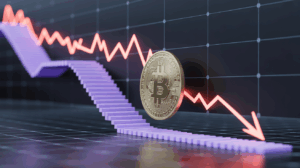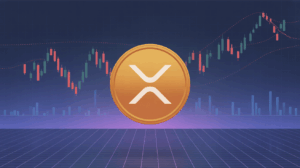Asia Morning Briefing: Hong Kong Set the Standard for In-Kind Crypto ETF Redemptions Well Ahead of U.S. SEC
Hong Kong Was First: SEC’s In-Kind Crypto ETF Move Echoes 2023 Policy in Asia
The U.S. Securities and Exchange Commission (SEC) made headlines Wednesday by approving in-kind redemptions for spot bitcoin and ether exchange-traded funds (ETFs). But across the Pacific, Hong Kong regulators adopted that framework nearly two years earlier.
The SEC’s decision permits institutional investors—authorized participants—to create and redeem ETF shares directly in BTC or ETH, bypassing fiat transactions. This streamlines operations and aligns crypto ETFs with commodity-backed products like gold ETFs, which have long used in-kind mechanics.
However, this is old news in Hong Kong. Back in late 2023, the city’s Securities and Futures Commission (SFC) explicitly approved in-kind redemptions during its preparatory phase for crypto ETFs, which launched in April 2024. The decision was facilitated by a structural requirement that issuers work with licensed local crypto exchanges and adhere to robust custody protocols—an approach absent in early U.S. or Canadian frameworks.
In contrast, U.S. regulators delayed the move due to concerns around custody, anti-money laundering, and market manipulation. ETF sponsors were initially forced to remove in-kind language from their filings, with the SEC opting for a cautious, cash-only path in early 2024.
That position drew internal criticism. Commissioner Mark Uyeda publicly challenged the rationale during the spot bitcoin ETF approvals in January 2024, pointing out that gold ETFs routinely use in-kind settlements. He argued the SEC had failed to explain why a standard ETF mechanism was treated as “novel” simply because it involved crypto assets.
A Tale of Two Frameworks
Hong Kong’s regulatory rollout stood in stark contrast to the U.S. approach—moving with clarity and coherence while balancing innovation with oversight. By embedding in-kind redemptions alongside licensing and custody mandates, the SFC sidestepped many of the policy tensions that defined the American experience.
The Data Hurdle Ahead
But the shift to in-kind processes poses a new challenge: tracking fund flows. Data firm SoSoValue warns that physical crypto redemptions don’t generate fiat inflows, complicating net flow reporting. Their attempts to estimate flows through indirect metrics have so far fallen short.
Unless ETF issuers voluntarily disclose detailed inflow data in both crypto and fiat, visibility into investor sentiment may decline—creating a blind spot for analysts and market participants.
Market Snapshot
- Bitcoin (BTC): Holding above $117,500 amid a modest rebound. Outflows from ETFs, profit-taking near $118K, and macroeconomic headwinds continue to limit upside momentum.
- Ethereum (ETH): Trading above $3,700. “Institutions increasingly view Ether as a complementary asymmetric bet to Bitcoin,” said March Zheng, General Partner at Bizantine Capital.
- Gold: Rebounded to $3,334 following a four-day slide. Investors are pricing in steady Fed policy despite weak U.S. job data.
- Nikkei 225: Flat at open as Asia-Pacific markets react cautiously to the looming U.S. tariff deadline confirmed by Commerce Secretary Howard Lutnick.
- S&P 500: Ended lower Tuesday, breaking a six-session record streak as markets await earnings data and Wednesday’s Fed decision.
Share this content:













